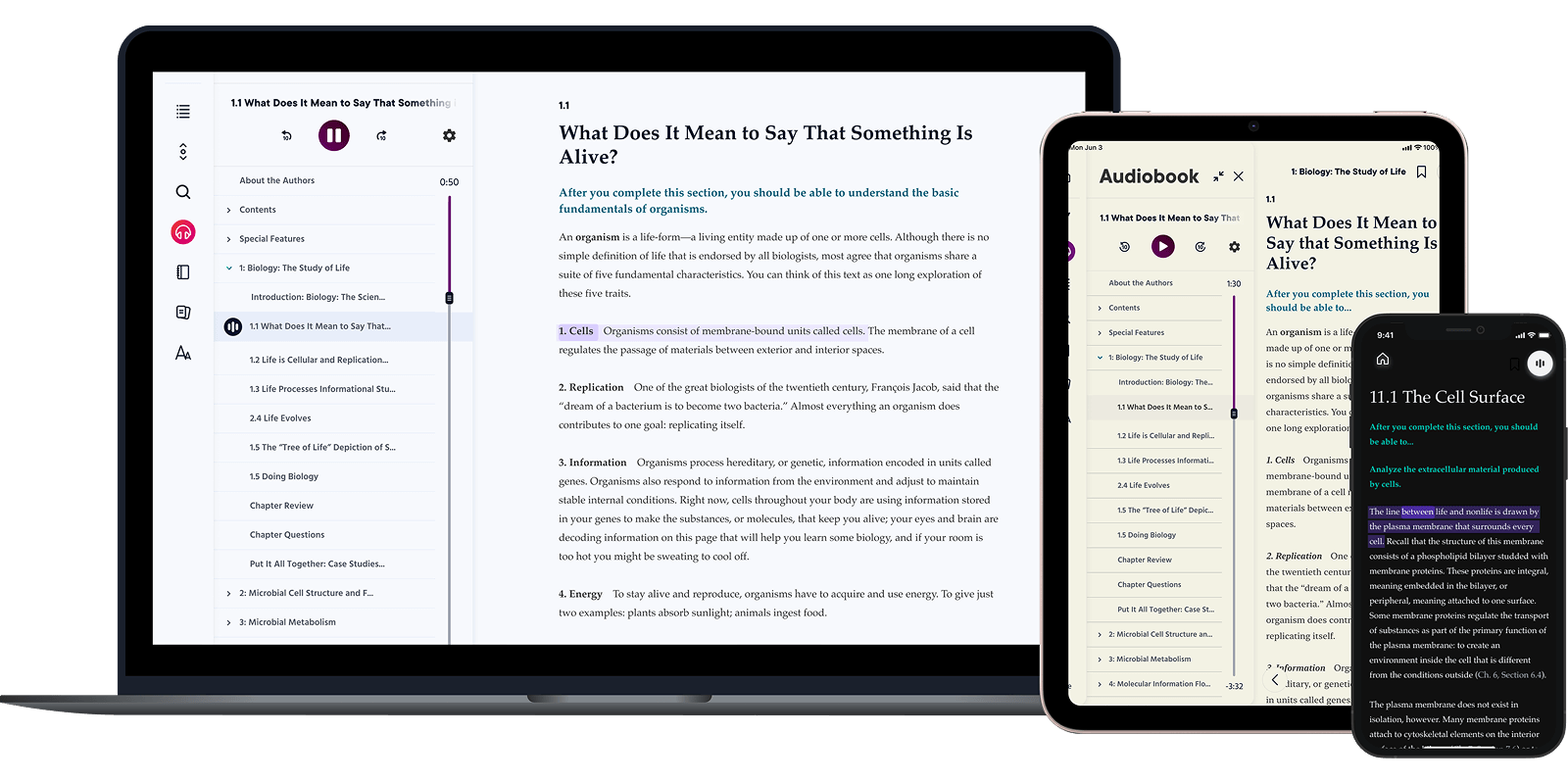
Students
Prepare for class
Find an eTextbook, explore study tools, or access learning platforms.

Educators
Find resources
Browse titles and teaching tools by discipline and explore ways to personalize learning.
Learning platforms that support students
From biology to literature, our digital platforms reimagine how students learn.
Ideas from our community
MyLab

Unlock potential with MyLab
Dynamic, results-driven learning grounded in world-class content
MyLab® provides a personalized learning experience tailored to each student's unique needs and learning styles. Throughout a course, in-app assessments let students, and their teachers, know when they need more practice or support. This real-time feedback tells instructors when students would benefit from customized lectures or individual guidance. Using data and analytics, educators can track student progress over time.
Mastering

Dive into STEM subjects with Mastering
An immersive and adaptable , hands-on platform for science and engineering majors
Mastering® empowers science and engineering students through active learning. Exercises, simulations, and hands-on activities grounded in real-world contexts engage students. As learners practice their skills, personalized tutorials give them feedback to build their competence and confidence. Educators get real-time insights into student performance with robust analytics.
Revel

Bring the narrative to life with Revel
A revolutionary platform with embedded assessments and multimodal content
Revel® uses embedded multimedia to make difficult concepts more approachable. It seamlessly integrates interactive content and assessments into an eTextbook reading experience. Students engage with course material multimodally, bringing the text off the page and into their real lives. Revel gives students the flexibility to move between devices and continue their learning journey without disruption.
Love your journey
Pearson+

Learn anywhere with eTextbooks & study tools from Pearson+
A mobile app with eTextbooks, study videos, and more — all in one place
Pearson+ has everything students need for class. With eTextbooks, supportive videos, practice problems, and AI-powered summaries available in a fun mobile app, students can learn on-the-go or from their couch. In addition to supporting success in college, Pearson+ helps students find an internship or assess their work style with Job Match. Students can also use Mondly to learn up to 41 new languages — complete with fluency checks and practice opportunities.

